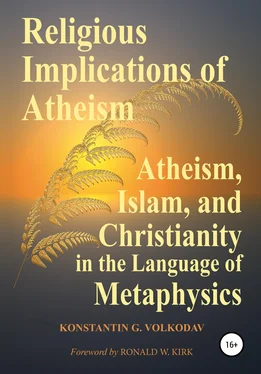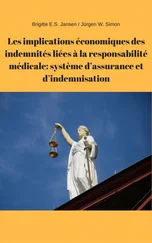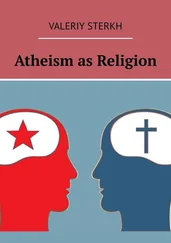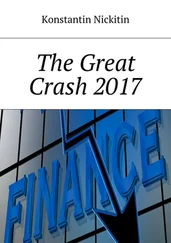1 ...8 9 10 12 13 14 ...20 In the Bible, the word “wisdom” occurs over two hundred times. For example, King Solomon wrote, “Get wisdom; get insight: do not forget, nor turn away from the words of my mouth. Do not forsake her, and she will keep you; love her, and she will guard you. The beginning of wisdom is this: Get wisdom, and whatever else you get, get insight. Prize her highly, and she will exalt you; she will honor you if you embrace her” (Prov. 4:5–8). Moreover, in the book of Ecclesiastes it is written, “Applied my mind to seek and to search out by wisdom all that is done under heaven; it is an unhappy business that God has given to human beings to be busy with” (Eccl. 1:13).
Thus, atheists have no monopoly on common sense. In Christianity and Islam a lot is said about the search for truth and wisdom. Therefore, as much as Krauss would like, in this respect atheism is not something unique. In fact, science was born and grew up in the religious tradition.
On the other hand, common sense and rational actions are not the only and universal tools for cognizing reality. Is it possible to love or compose music, poetry, paint pictures, relying only on common sense and rational actions? Of course not.
[00:38:51] Krauss: If you force reality conformed to your beliefs, you make irrational actions. So, you could do things, based on your beliefs, on your a priori beliefs . . . For example, your a priori belief could be that if you pray to Allah, then you can jumping out of the fourth storey from window of this building and you will land safely. Okay? That could be a priori belief . . . And, in fact, you could deduce based on all your beliefs and all of the evidence that you are a good person, and Allah would takes care of you, or whatever you call it, and you will be fine. I would take the elevator down. And only one of us could be walking at the end. That is not deductive. It is based on empirical evidence. Ok.
Comment 17
Neither Tzortzis, nor any other Muslim, jump out of windows, but ride down the elevator. The example is not relevant. Moreover, this is stupidity and slander. In addition, it is he, Krauss, who tries to deduce facts from his beliefs, a priori beliefs. Krauss did not have any mystical experience, and therefore his a priori conviction is the belief that there is no God. Nevertheless, Krauss’s empirical data is completely insufficient to draw any conclusions by the method of induction.
[00:39:35] Krauss: So, arguing that something does not makes sense to you, is based on the fact, the assumption that you know what is sensible in advance. But we do not know what is sensible in advance until we explore the world around us. Our common sense arise, in the fact, on the savanna in Africa to avoid lions, not to understand quantum mechanics, for example.
Comment 18
Krauss never ceases to amaze. I would like to believe that he is sincerely mistaken, and not maliciously. However, it is difficult to imagine how a person in their right mind could say that. According to Krauss and other atheists, the universe, and all of its contents, arose from random processes. However, at no stage in the chain of random processes can a purpose appear. Randomness and purpose are two opposites. Atheistic evolution, because of a chain of random processes, is blind and meaningless, and it cannot lead to the emergence of purpose and meaning. It is impossible to reasonably explain how hydrogen atoms were able to accidentally self-organize into living creatures that have desires, purposes (for example, not to be caught by a lion) and some “common sense”.
In addition, if common sense, as we understand it, originated in the African savannas, then antelopes and gazelles would succeed in it more than humans would, because lions hunt mainly antelopes. However, we do not know of a single animal that, at least in an embryonic form, had an interest in the study of the surrounding world, in science, art, creativity. Evolution has not bequeathed us to understand anything, because it is blind and meaningless. There is not a single rational explanation of how evolutionary self-consciousness of a person, his thirst for knowledge, and all types of creativity could arise. From the point of view of evolution, all this is superfluous and unnecessary, and therefore there is nothing like this in the animal world.
[00:39:59] Krauss: As I often said, common sense our deductions might suggest that you cannot be in two places at once. That is crazy. But, of course, an electron can do it. It is does not make sense because we did not evolve to know about it, we have learned about it . . . We force our common sense to change. And it is called learning.
Comment 19
Christian theologians have had to solve paradoxes that are far more surprising. How can God be in all places at the same time? How can the Trinity be absolute Oneness? How can the Uncreated God, existing outside of time and outside the material world, at some point in history unite with material human flesh? How can the Immortal die? How can God be separated from God (from himself) on the Cross? This and much more simply does not fit in the head, and it seems impossible. Theologians have to study this, and Christians make their common sense change.
Therefore, the example from quantum mechanics does not explain anything. This is not the difference between atheism and religion. Religious people have also studied and are engaged in quantum mechanics and strive for learning.
Nevertheless, it is good that Krauss draws attention to an important fact: human common sense can be a false guide and inadequate to talk about reality. Therefore, the topic of the debate was not formulated quite correctly. Let’s say one of the respected interlocutors convinces the audience that his worldview makes more sense. But a worldview, which seems to makes more sense, may inadequately reflect reality. And then all this common sense that a person hoped for has no value.
What does Christianity say? Will it be based on common sense and earthly wisdom? Not. “For it is written, ‘I will destroy the wisdom of the wise, and the discernment of the discerning I will thwart . . .’ Has not God made foolish the wisdom of the world?” (1 Cor. 1:19–20) The human mind encounters many paradoxes in Christianity.
On Christianity and Religions
Uneasy Relationship of Christianity and Religion
Before talking about Christianity and religion, it is advisable to briefly talk about the very concept of “religion”, because during debates, interlocutors often means by “religion” are completely different phenomena. For example, before the Middle Ages, the term “religion” had a very narrow meaning and denoted godliness, piety, worship of God, or something like that. [35] . For example, Acts. 17:22 “Paul stood in front of the Areopagus and said, ‘Athenians, I see how extremely religious you are in every way’.” Gr.: «Σταθεὶς δὲ ὁ Παῦλος ἐν μέσῳ τοῦ ᾿Αρείου πάγου ἔφη• ἄνδρες ᾿Αθηναῖοι, κατὰ πάντα ὡς δεισιδαιμονεστέρους ὑμᾶς θεωρῶ».
Only specific ideas and related practices were called religion. Later, from about the eighteenth century, the term “religion” began to be given a broad and universal meaning.
To solve the terminological problem of determining religion, we offer the following arguments. Any idea in the field of worldview, social relations and cultures is usually materialized and externally expressed by any ceremonies, rites and rituals. As a rule, these ceremonies and rites follow their idea in the event of her evolution, but sometimes they can break away from her, closing in themselves. Thus, the formation of a conditional “body” of religion occurs similarly to the formation of state and cultural traditions, because the action of the same laws of psychology.
Читать дальше

![Константин Бальмонт - Константин Бальмонт и поэзия французского языка/Konstantin Balmont et la poésie de langue française [билингва ru-fr]](/books/60875/konstantin-balmont-konstantin-balmont-i-poeziya-francuzskogo-yazyka-konstantin-balmont-et-thumb.webp)










